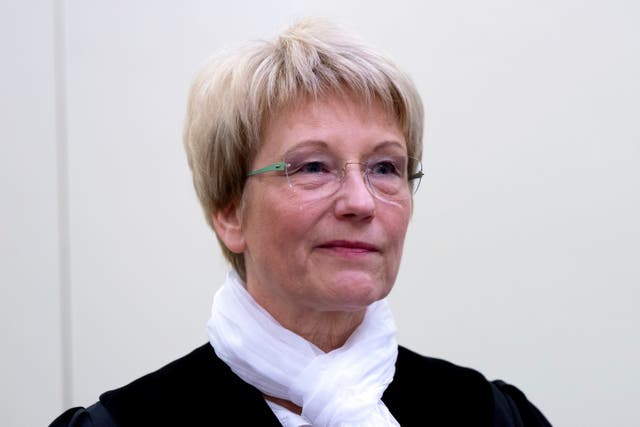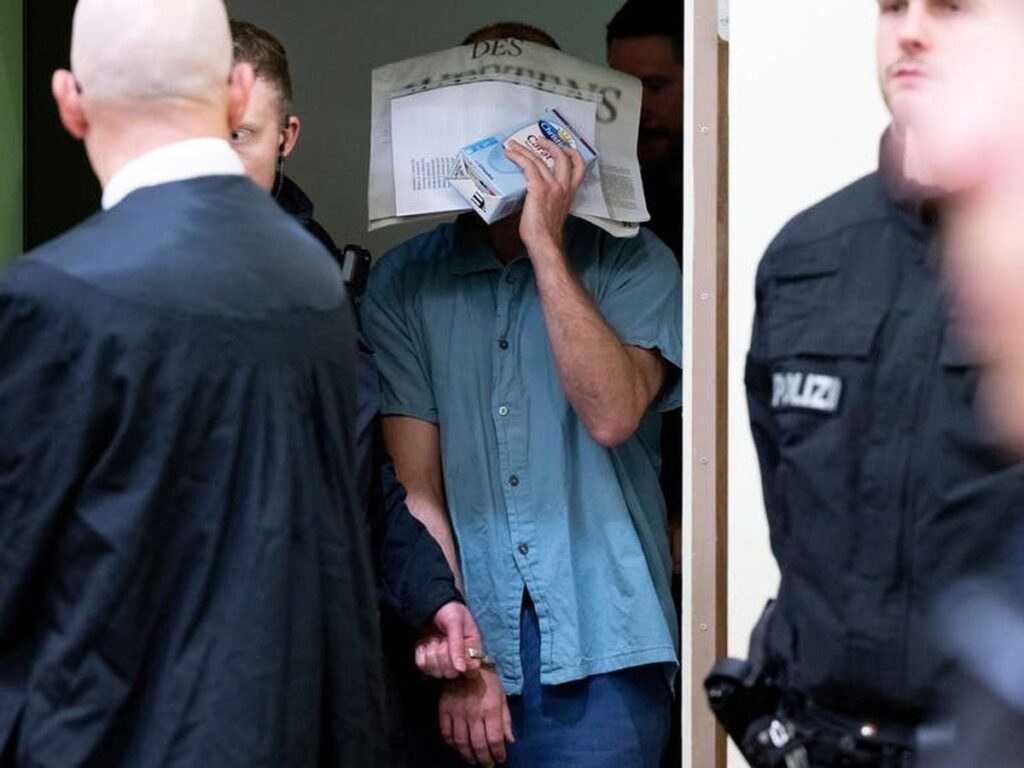Eight people suspected of being involved in a far-right plot to overthrow the German government went on trial in Munich on Tuesday, the final of three trials in the wide-ranging case.
Eight Germans, six men and two women, have been charged with “preparing to commit treason”.
They are also accused of being members of or founding terrorist organisations, and some have been charged with preparing serious acts of violence.
The case, which came to light in late 2022, has shocked the country and a total of 26 people are currently before the courts.
 Presiding judge Dagmar Irini enters the courtroom at the Munich Higher Regional Court ahead of the start of the trial (Sven Hoppe/dpa via The Associated Press)
Presiding judge Dagmar Irini enters the courtroom at the Munich Higher Regional Court ahead of the start of the trial (Sven Hoppe/dpa via The Associated Press)
The trial of the nine, which began in Stuttgart at the end of April, is focusing on the “military aspects” of the plot.
Both cases are expected to be lengthy, with 55 hearings scheduled by the end of January at the Munich state court, German news agency dpa reported.
Prosecutors said the suspects believed “conspiracy theories”, including Reich Citizens and QAnon ideology, and were convinced Germany was ruled by a so-called deep state.
Prosecutors said the group planned to storm the Reichstag building in Berlin and arrest lawmakers.
Russia reportedly intended to negotiate a post-coup order primarily with the Soviet Union, as one of the Allied victors of World War II.
The plotters are said to have had around 500,000 euros (£420,000) in funding and access to an arms cache.
Federal prosecutors say he created multiple “enemies lists” to use to take over local governments.
The trial comes at a time of growing concern in Germany about the far right.
The number of potentially violent right-wing extremists rose from 14,000 in 2022 to 14,500 last year, the domestic intelligence agency said in its 2023 annual report released Tuesday.
The agency said the total number of far-right crimes rose by more than 22% to 25,660, more than half of which were propaganda-related.
Violent crimes perpetrated by the far-right rose by 13% to 1,148 cases, of which 1,016 involved physical harm.
Intelligence chief Thomas Haldenwang said there had been a surge in far-right demonstrations, with asylum and immigration being a main focus.



